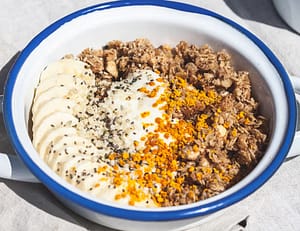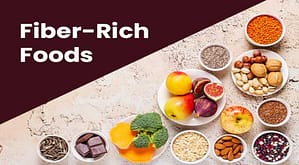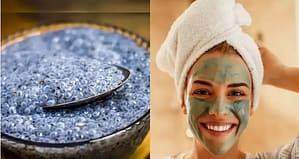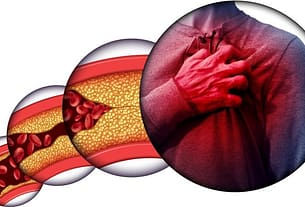Chia seeds are indeed a nutrient-rich food that can be a beneficial addition to many diets. Here are several reasons why chia seeds are often recommended as part of a healthy diet:
- Nutrient Dense: Chia seeds are packed with nutrients, including fiber, protein, omega-3 fatty acids, calcium, phosphorus, and various vitamins and minerals.
- High in Fiber: Just a small serving of chia seeds provides a significant amount of dietary fiber, which is important for digestive health, regulating blood sugar levels, and promoting satiety.
- Source of Omega-3 Fatty Acids: Chia seeds are one of the richest plant-based sources of alpha-linolenic acid (ALA), which is a type of omega-3 fatty acid that supports heart health and reduces inflammation.
- Antioxidant Properties: Chia seeds contain antioxidants that help protect the body from oxidative stress and may reduce the risk of chronic diseases.
- Versatile: Chia seeds are easy to incorporate into a variety of dishes. They can be sprinkled on top of salads, yogurt, or oatmeal, added to smoothies, used as a thickening agent in recipes, or even used to make chia pudding.
- Gluten-Free and Vegan: Chia seeds are naturally gluten-free and suitable for vegan and vegetarian diets, making them a versatile option for individuals with dietary restrictions.
- Hydration: When mixed with liquid, chia seeds form a gel-like substance that can help keep you hydrated and provide sustained energy.
Despite their many health benefits, it’s essential to consume chia seeds in moderation as they are calorie-dense. Adding a tablespoon or two to your daily diet can provide a nutritional boost without significantly increasing your calorie intake.
Additionally, it’s essential to drink plenty of water when consuming chia seeds, as they can absorb large amounts of liquid and may cause digestive issues if not consumed with enough fluids. Always consult with a healthcare provider or registered dietitian before making significant changes to your diet.
Table of Contents
ToggleHow to start including chia seeds in our meals

Incorporating chia seeds into your meals is simple and can add a nutritional boost to various dishes. Here are some easy ways to start including chia seeds in your meals:
- Smoothies: Add a tablespoon or two of chia seeds to your favorite smoothie recipes. They’ll add thickness and a nutritional punch without altering the flavor significantly.
- Oatmeal or Breakfast Cereals: Sprinkle chia seeds over your morning bowl of oatmeal or cereal. They’ll add texture and boost the fiber and protein content of your breakfast.
- Yogurt Parfaits: Layer chia seeds between yogurt and fruit in a parfait for added crunch and nutrition.
- Salads: Sprinkle chia seeds over salads to add a crunchy texture and boost the nutritional content. They work well in both green salads and fruit salads.
- Baked Goods: Add chia seeds to baked goods such as muffins, bread, or pancakes for an extra nutritional boost. You can either mix them directly into the batter or sprinkle them on top before baking.
- Chia Pudding: Mix chia seeds with your choice of liquid (such as almond milk or coconut milk) and sweetener (such as honey or maple syrup) to create a chia pudding. Let it sit in the refrigerator for a few hours or overnight until it thickens into a pudding-like consistency. Top with fruits, nuts, or granola before serving.
- Homemade Energy Bars: Incorporate chia seeds into homemade energy bars or granola bars for added nutrition and texture.
- Soups and Stews: Stir chia seeds into soups or stews just before serving to add thickness and boost the nutritional content.
- Chia Water: Mix chia seeds with water and a splash of lemon or lime juice for a refreshing and hydrating beverage. Let it sit for a few minutes to allow the chia seeds to swell before drinking.
Remember to start with small amounts of chia seeds and gradually increase as needed. Also, make sure to drink plenty of water when consuming chia seeds, as they absorb liquid and can cause dehydration if not consumed with enough fluids.
Chia seeds are also rich in fiber

Chia seeds are indeed rich in fiber, which is one of their key nutritional components. Here’s how the fiber content in chia seeds can benefit your health:
- Digestive Health: Chia seeds are an excellent source of both soluble and insoluble fiber. Soluble fiber absorbs water and forms a gel-like substance in the digestive tract, which can help soften stools and promote regular bowel movements. Insoluble fiber adds bulk to the stool, aiding in its passage through the digestive system. Both types of fiber can help prevent constipation and promote overall digestive health.
- Weight Management: Foods high in fiber, like chia seeds, can help you feel fuller for longer periods, which may aid in appetite control and weight management. By promoting satiety, fiber can help reduce overall calorie intake, making it easier to maintain a healthy weight.
- Blood Sugar Control: Fiber can slow down the absorption of sugar in the bloodstream, preventing rapid spikes and crashes in blood sugar levels. This can be particularly beneficial for individuals with diabetes or those at risk of developing the condition.
- Heart Health: High-fiber diets have been linked to a reduced risk of heart disease. Fiber can help lower LDL cholesterol levels (the “bad” cholesterol) by binding to cholesterol in the digestive tract and promoting its excretion. Additionally, fiber-rich diets may help lower blood pressure and reduce inflammation, further supporting heart health.
- Gut Health: The fiber in chia seeds serves as a prebiotic, which means it nourishes the beneficial bacteria in the gut. A healthy balance of gut bacteria is essential for digestive health, immune function, and even mood regulation.
Incorporating chia seeds into your diet can be an easy and delicious way to increase your fiber intake. You can sprinkle them on top of yogurt or oatmeal, add them to smoothies, mix them into baked goods like muffins or bread, or use them to make chia pudding. Just remember to drink plenty of water when consuming chia seeds, as their high fiber content can absorb water and help prevent any digestive discomfort.
Benefits of chia seeds on skin

Chia seeds offer several potential benefits for skin health when consumed as part of a balanced diet. Here are some of the ways chia seeds may contribute to healthier skin:
- Hydration: Chia seeds are hydrophilic, meaning they can absorb water and help retain moisture. When consumed, chia seeds can help hydrate your body from the inside out, which is essential for maintaining healthy, radiant skin.
- Omega-3 Fatty Acids: Chia seeds are rich in omega-3 fatty acids, particularly alpha-linolenic acid (ALA). Omega-3 fatty acids play a crucial role in maintaining the skin’s lipid barrier, which helps lock in moisture and protect the skin from environmental damage.
- Anti-inflammatory Properties: Omega-3 fatty acids also have anti-inflammatory properties, which can help reduce inflammation in the skin. This may be beneficial for conditions such as acne, eczema, and psoriasis, which are often characterized by inflammation.
- Antioxidants: Chia seeds contain antioxidants such as vitamins A, C, and E, as well as flavonoids and phenolic compounds. These antioxidants help neutralize free radicals, which can damage skin cells and contribute to premature aging. By reducing oxidative stress, antioxidants in chia seeds may help maintain youthful-looking skin.
- Collagen Production: Chia seeds are a good source of certain nutrients, such as zinc and vitamin C, that are important for collagen synthesis. Collagen is a protein that provides structure and elasticity to the skin, and adequate intake of these nutrients can support collagen production, promoting firmness and elasticity.
- Blood Sugar Regulation: Chia seeds contain soluble fiber, which can help regulate blood sugar levels by slowing down the absorption of carbohydrates. Stable blood sugar levels are important for overall skin health, as fluctuations in blood sugar can contribute to acne and other skin issues.
- Detoxification: Chia seeds contain fiber, which can aid in digestion and promote regular bowel movements. Efficient elimination of toxins from the body may help improve skin clarity and reduce the risk of breakouts.
While consuming chia seeds can provide benefits for skin health, it’s important to remember that they work best as part of a comprehensive skincare regimen that includes proper cleansing, hydration, sun protection, and other skincare practices. Additionally, individual results may vary, and it’s always a good idea to consult with a dermatologist or healthcare professional for personalized skincare advice.





